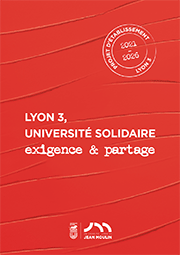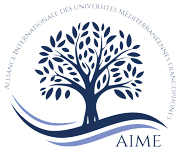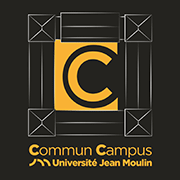AccueilRechercheProgrammes et productions scientifiquesThèsesThèses soutenuesThèses soutenues - 2006-2021Thèses soutenues - 2018
-
Partager cette page
- Recherche,
CHANG Ti-Han
The Role of the Ecological Other in Contesting Postcolonial Identity Politics: An Interdisciplinary Study of the Postcolonial Eco-literature of J.M. Coetzee and Wu Ming-yi
Publié le 9 juillet 2018 – Mis à jour le 9 juillet 2018
Thèse en ?tudes Transculturelles, soutenue le 18 juin 2018.
Cette thèse présente une analyse comparée des oeuvres de deux écrivains contemporains, John Maxwell Coetzee (1940-), originaire d’Afrique du Sud, et Wu Ming-yi (1971-), de Ta?wan, que l’on associe au genre de la ? littérature écologique postcoloniale ?. ? partir de leurs travaux, cette thèse propose une étude interdisciplinaire couvrant trois dimensions de leurs travaux : la théorie, la politique et le littéraire. Les textes choisis pour l’analyse sont ceux qui cherchent à la fois à fournir une image dystopique de l’exploitation des environnements naturels et des êtres non-humains et à représenter l’oppression coloniale des peuples colonisés et de l’exploitation des ressources naturelles dans différentes parties du monde. En ce qui concerne la dimension théorique, la thèse aborde le questionnement suivant : comment la philosophie occidentale contemporaine prend en compte les animaux et les êtres écologiques (êtres non-humains et non-animaux), afin de reconsidérer la question plus générale de l’altérité. Quant à la dimension politique, la thèse adopte une posture philosophique afin de questionner les contextes historiques des pays postcoloniaux, notamment ceux de l’Afrique du Sud et de Ta?wan. Enfin, la dimension littéraire examine les écrits de Coetzee et de Wu afin de montrer comment leurs textes décrivent l’? autre écologique ? (ecological other) en tant que moyen pour lutter contre l’identité politique postcoloniale.
This thesis presents the literary works of two contemporary writers—John Maxwell Coetzee (1940-), originally from South Africa, and Wu Ming-yi (1971-) from Taiwan—whom it analyses as key exponents of postcolonial eco-literature. The thesis offers an interdisciplinary study of their works in their theoretical, political and literary aspects. The texts selected for analysis are those that seek to present a dystopian image of the exploited natural environment or nonhuman entities, while, at the same time, associating and articulating these representations with the suppressions and exploitations carried out within colonial frameworks in different parts of the world. As regards the theoretical perspective of the thesis, it addresses the subject of how contemporary continental philosophy takes nonhuman animals and other kinds of ecological beings into account and rethinks the philosophical question of the other. With respect to politics, it contextualises this philosophical questioning by looking at the history of various postcolonial countries, notably South Africa and Taiwan. Lastly, as far as literature is concerned, it examines the writings of Coetzee and Wu in order to show how their texts depict the ecological other as a way of contesting postcolonial identity politics.
Mots-clés :
Afrique du Sud, animan, anthropocentrisme, autres non-humaines, écocritique postcoloniale, état-nation, relations affectives, éthique animale, éthique environnementale, subjectivité, Ta?wan
Keywords :
affective relations, animal ethics, animan, anthropocentrism, postcolonial ecocriticism, environmental ethics, nation-state, nonhuman others, South Africa, subjectivity, Taiwan.
Directeur(s).trice(s) de thèse : M. Jon SOLOMON
This thesis presents the literary works of two contemporary writers—John Maxwell Coetzee (1940-), originally from South Africa, and Wu Ming-yi (1971-) from Taiwan—whom it analyses as key exponents of postcolonial eco-literature. The thesis offers an interdisciplinary study of their works in their theoretical, political and literary aspects. The texts selected for analysis are those that seek to present a dystopian image of the exploited natural environment or nonhuman entities, while, at the same time, associating and articulating these representations with the suppressions and exploitations carried out within colonial frameworks in different parts of the world. As regards the theoretical perspective of the thesis, it addresses the subject of how contemporary continental philosophy takes nonhuman animals and other kinds of ecological beings into account and rethinks the philosophical question of the other. With respect to politics, it contextualises this philosophical questioning by looking at the history of various postcolonial countries, notably South Africa and Taiwan. Lastly, as far as literature is concerned, it examines the writings of Coetzee and Wu in order to show how their texts depict the ecological other as a way of contesting postcolonial identity politics.
Mots-clés :
Afrique du Sud, animan, anthropocentrisme, autres non-humaines, écocritique postcoloniale, état-nation, relations affectives, éthique animale, éthique environnementale, subjectivité, Ta?wan
Keywords :
affective relations, animal ethics, animan, anthropocentrism, postcolonial ecocriticism, environmental ethics, nation-state, nonhuman others, South Africa, subjectivity, Taiwan.
Directeur(s).trice(s) de thèse : M. Jon SOLOMON
Membres du jury :
Mme CHEN Chun-Yen, Associate Professor, National Ta?wan University, Taipei (TA?WAN),
M. Graham HUGGAN, Professor, University of Leeds (ROYAUME-UNI),
Mme Claire JOUBERT, Professeure des universités, Université Paris 8 Vincennes-Saint-Denis,
M. Corrado NERI, Maitre de conférences HDR, Université Jean Moulin Lyon 3,
M. Jon SOLOMON, Professeur des universités, Université Jean Moulin Lyon 3.
Président.e du jury : Mme Claire JOUBERT
Equipe d'accueil : IETT
M. Graham HUGGAN, Professor, University of Leeds (ROYAUME-UNI),
Mme Claire JOUBERT, Professeure des universités, Université Paris 8 Vincennes-Saint-Denis,
M. Corrado NERI, Maitre de conférences HDR, Université Jean Moulin Lyon 3,
M. Jon SOLOMON, Professeur des universités, Université Jean Moulin Lyon 3.
Président.e du jury : Mme Claire JOUBERT
Equipe d'accueil : IETT
Décision : Admise
Documentation
Mise à jour : 9 juillet 2018







